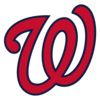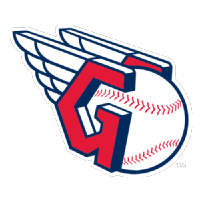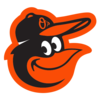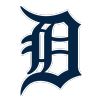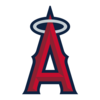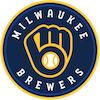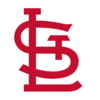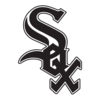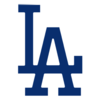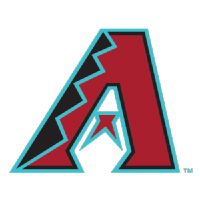MLB Lines, Odds, and Betting Trends
- MLB Odds
- Splits
- Inning Lines
- Props
- Parlays
- Picks
The Best MLB Odds Comparison Tool
Wondering how to best utilize the MLB odds comparison tool? You’ve come to the right place.
Our MLB odds comparison tool allows bettors to compare Major League Baseball odds across all legal U.S. sportsbooks, which is a vital resource for novice or experienced baseball handicappers. If you reside in (or happen to be traveling through) a state such as Pennsylvania, New Jersey or Indiana, where sports wagering is legalized, you’ll want to bookmark this tool.
Bettors always want to hunt for the best available line on a given game – it gives them the best chance to profit over the short and long term. Continue below for a breakdown of how to use the MLB odds comparison tool along with some key nuggets for MLB bettors.
How to Use Our MLB Odds Comparison Tool
The MLB odds comparison tool allows bettors to quickly and accurately uncover the best runlines, totals and moneyline MLB odds from legal sportsbooks within the United States. It’s not easy (or fun) to sift through each book one-by-one throughout the day to ensure you’re getting the best value, so we’ve done the hard work for you.
All you’ll need to do is highlight the type of bet you want to see – runlines (spreads), totals, moneylines. The most favorable MLB odds for your bet will be highlighted, so that’s the indicator you’ll want to key in on. Now you know which sportsbook to head to in order to place your bet!
Here’s some more good news. If you happen to land on a sportsbook that you don’t have an account for yet, that book will have a bonus for new players which could include things like a deposit bonus or bonus bet, which can prove beneficial to players. Sign up through the links and get your wager down!
MLB Betting Glossary & Guide
Those who are new to MLB betting will need to understand the basics before diving in. What is a runline? What does it mean to parlay bets together? We’ll get into the things baseball bettors are going to encounter on a daily basis.
Moneyline
The MLB is bet most commonly via the moneyline. In short, if the team you bet on wins, you win. If that team loses, you lose – with one big caveat. Each team has MLB odds associated with them, and those Vegas odds determine your payout and potential loss. Basically, favorites require you to risk more money than will be returned upon a win, while betting underdogs pay out more than the required risk.
Let’s say the Phillies and Yankees are playing an interleague game with moneyline MLB odds posted as Yankees -155 and the Phillies at +135. In this example, the Yankees would be considered the favorites. If a bettor were to place a wager on the Yankees, they’d need to risk $155 in order to earn a $100 profit. On the flip side, if a $100 wager was placed on the Phillies moneyline, a victory would leave the bettor with a $135 profit.
One key thing for new bettors to be aware of is that betting on big moneyline favorites tends to be a losing endeavor in the long run. While one team may have an enormous advantage over another, upsets happen frequently in sports and losing even one bet on a large moneyline favorite can offset a larger number of winning tickets given that you are risking a lot to win a little each time.
It’s also important to pay attention to player news. Moneyline odds could change considerably based on a pitching change, for example. If you have a way to track news – the RotoGrinders Alerts app is a strong option – you may be able to capitalize quickly on that news, resulting in getting better MLB odds on a team. Books hop on these things quickly, but if you can pounce before the game is taken off the board, you’ll be at a big advantage.
Spread
The spread in baseball is also sometimes referred to as the runline. It works just like spreads for other sports, although the numbers themselves don’t differ nearly as much as they do in the NBA or NFL. In the MLB, the spread is almost always 1.5 runs. The favorite would be giving up 1.5 runs while the underdog would be getting 1.5 runs. Most books also offer alternative spreads/runlines where you can get different numbers, plus or minus 3.5 runs for example.
Here’s a quick example. If you were to bet on the Yankees as a favorite – the team giving up 1.5 runs – you’d see that displayed as Yankees -1.5. What that means is that you not only need the Yankees to win in order to cash your ticket, you need them to win by two or more runs. If they win but only win by a single run, they don’t cover the spread and thus the bet is a loser. Let’s say a bettor places a spread wager on the Phillies at +1.5 runs. That bettor will cash his ticket if the Phillies win or if they manage to either win, or only lose by a single run.
There are some nuances with spread betting that MLB bettors should be aware of. If you are betting a spread favorite, especially a team that also happens to be a big moneyline favorite, it’s beneficial for that team to be playing on the road given that they will automatically have access to at-bats in the ninth inning. If you were to bet a spread favorite who was winning 3-2 after eight innings, you’d actually be rooting for the opposing team to tie the game in the top of the 9th in order to give your side a chance to cover the spread in the bottom of the inning (win by at least two runs).
Totals (Over/Unders)
Betting totals is very different from spreads or moneylines. Bettors with tickets on totals aren’t concerned at all about which team wins, they simply care about how many total runs are scored by both teams, including any scored in extra innings. Those with tickets on the over will be rooting for home runs and bases-clearing gappers, while those holding bets on the under will want a pitchers duel and a lot of zeros on the scorecard.
If a bettor is holding an over ticket with a spread of 9.5 runs on an Orioles/Blue Jays game, that bettor would cash if the Yankees and Orioles combined for ten or more runs. Anything less and the bettor is holding a losing ticket.
Weather is very important to totals in the MLB. While starting pitchers and the quality of offense holds the biggest weight in determining a total, the weather also plays a big role. In general, colder weather tends to suppress offense while warm atmospheres can lead to warning track outs turning into second-deck home runs. Every good totals bettor factors weather into the equation, so make sure to have your eyes on that daily.
It’s also important to be aware of the stadium and city in which games are being played. Games in infamous Coors Field always have high totals because of the thin Denver air that promotes air travel of a baseball. Some stadiums have shorter fences and different dimensions than others – some may play better for left-handed hitters than right-handed hitters and vice versa.
Vig or Juice
These are two of the most common terms in the betting world and they refer to the books cut of each bet placed. Vig (or vigorish) is basically how the book profits – they take a percentage of the bet for taking the action. The vig or juice is very evident in spread and totals betting – you’ll usually see each side or total posted at -110 odds, in turn meaning you have to risk $11 to profit $10. That leftover $1 goes to the book. Therefore, bettors that win exactly half of their bets don’t break even, they end up slightly in the red.
It’s not uncommon to see MLB odds other than -110 on spread or total bets. You may see a spread bet posted at -115 or -120, which likely indicates that the spread number is about to move against that team. In those cases, the other side of the spread bet may be available at -105 or even money (+100). Some books may also run occasional promotions where they offer discounted vig, allowing bettors to get down on spreads and totals at -105 for example. Be on the lookout for those, as they are advantageous for the player.
Other MLB Betting Terms to Know
MLB betting is such a vast market. There are so many ways to get down on a single game – you can bet it by the inning, you can bet the first five innings, and you can even hop in and bet it live at almost any time. Here are some of the key terms that cover the type of bets that MLB fans will come across:
First Five Innings
Betting the first five innings of an MLB game has become increasingly popular in the market. Since we do know which starting pitchers are going that day but aren’t sure who may follow, first five inning bets cover only the first five innings of a game and the outcome is more dependent upon the starting pitcher than a bet on the full game. If the Indians and Tigers are playing a game where the Indians are -125 moneyline favorites for the first five innings and they are winning 6-5 after the bottom of the fifth, the bettor cashes their ticket. They still cash even if the Indians were to blow the game after the fifth – nothing that occurs in the 6th inning or later matters.
Live or In-Game Betting
Almost all books in the US market offer live betting – an opportunity to bet a game as it’s happening. Maybe you lost track of time and didn’t get a bet in pregame or you wanted to see how a pitcher looked out of the gate. Either way, you can still place a wager!
Baseball is a random game, and weird things can happen throughout a game. You could be watching a game where the underdog seems to be getting lucky out of the gate, dropping in bloop hits and scraping runs across while also playing stellar defense for the first few innings. If it seems fluky, you may want to get a live bet down on the pre-game favorite at much better MLB odds now that they are trailing by a few runs but might be on the cusp of a comeback. Injuries can cause swings to live betting lines, especially in-game pitching injuries, so if you can act quickly you may be able to take advantage of bad lines for a short period of time. (Click here to learn how to read lines.)
It’s worth noting that some books add more vig or juice to live bets. It’s not uncommon to see a standard -115 line for spreads and totals rather than the custom -110.
Parlays
This betting format involves grouping multiple bets together into one ticket, all of which need to win in order for you to cash your ticket. A bettor could win the first nine legs of a ten-team parlay and if that tenth team can’t get the job done, the bettor is out of luck. Given that you need each leg to win, these bets come with higher payouts. Use our parlay calculator for your convenience.
A bettor may look at the board on a given day and see five favorites – the Dodgers, Astros, Rays, Red Sox and Brewers – and rather than bet them individually, the bettor wants to parlay them together. Instead of placing bets on each of the moneyline favorites, parlaying them together can create a plus-money payout for the bettor if all five legs come through.
The industry standard for two-team parlay payouts is 2.6 to 1, with three-team parlays paying out at 6-1, four-team at 11-1 and five-team at 22-1.
Parlays can be a fun way to sweat a day of sports, but it can also be a drag if an early leg loses. Betting parlays consistently tends to be a losing proposition over time. Use our parlay calculator if you’re ready to swing for a big payout.









